
-First of all, please tell us a brief introduction and your biography up to now.
Sato: After graduating from Kyoto City University of Arts, I entered graduate school, and after graduating, I worked as a working adult for a year, and am currently preparing to study abroad.
-Have you ever attended a seminar?Have you been abroad?
Sato: Last year I attended the Thermal Seminar at the Vienna State University of Music. This was my first time participating in an overseas seminar in my life, and that sparked my interest and I applied to the seminar this summer as well.
-What made you want to go to this class?
Sato: I participated last year with the aim of taking lessons from a professor at the Vienna State University of Music and Music, and the Sensei I took lessons from last year was not accepting new students due to age issues, so after returning to Japan, I decided to take a class at Sensei. This year, I was able to connect with Hinterhuber Sensei, and this year I attended a seminar where Sensei was participating.
-What was the schedule for the seminar?
Sato: The Mozarteum lesson was 45 minutes, and the Allegro Vivo lesson was about 60 minutes. The Mozarteum had 14-15 participants, 3 lessons per person. Allegro Vivo had 5 to 6 participants and lessons were held almost every day. Sensei gives lessons as much as possible, and adjusts the lesson time and number of lessons depending on the number of students.
-What kind of person was sensei?
Sato: He was a person full of humanity, cheerful, always smiling, and really kind. He was also very serious and sincere about music, even practicing sensei before lessons. I thought he was a very passionate person and had high standards for himself. He wasn't harsh in his tone or facial expressions, but the gap between him smiling and making high-level demands was an interesting sense. During the seminar, at the concert where sensei was accompanied, all the songs were played from memory, and it was very inspiring to see them practice in their spare time even during the seminar, and go to such lengths to understand the music deeply and play it. I sasari. I thought he embodied the ideal form of a pianist, so for me, he was the perfect piano sensei. I had been taking online lessons for a long time, but there was no comparison to face-to-face lessons. Even when we communicated online and through an interpreter, there was a distance and we didn't have time to chat, so we couldn't create an atmosphere where we could get along, but after taking lessons face-to-face, I finally felt closer to sensei. We got closer and were able to become friends. Also, the quality of the lessons was very high as I was able to hear the performance right in front of me and have the students point out things right in front of me.
-What did you learn in the lesson?Is there anything that left an impression on you as a result of what you learned?

Sato: It's about playing faithfully to the score. Make sure to play formally and to match the score perfectly. Rather than that, I read and understand what is written on the sheet music correctly, and then play as best as I like. It wasn't until I got to that point that I realized that the essence was that it was exactly as the score was written. Let's play the music according to the score and express it more deeply. This method of assembling a performance and practicing has been consistent in all eras and works. Classical music is based on sheet music, so I felt that there was something like a Viennese tradition in their approach of preserving that score and making it a wonderful performance. I feel that the reason Viennese music is so wonderful is because of this attitude.
-In what language did you take the lesson?
Sato: We communicated in English. Even at the Mozarteum, there were very few opportunities to receive help from an interpreter. The lessons without an interpreter went smoothly, and even though they were the same amount of time, it felt like the lessons were longer.
-Did you have the opportunity to perform in public (concerts, competitions, etc.) during the course?
Sato: There were both. There were both concerts by representatives of the whole class, and apart from that, all the students in the class listened to each other. It was a seminar within a music festival, so there were concerts every day, and some people were able to perform if they had the chance.
-Where did you practice?How long have you been able to practice?
Sato: At the Mozarteum, we were able to rent the practice room for up to three hours a day. I knew the lesson schedule on the first day, so I made a reservation in advance at the reception desk. Allegro Vivo rented a practice room from a nearby music high school. There are 1 practice rooms, which can be reserved in two parts: 3:8-8:00 and 14:00-14:00. However, on days when I practiced in the morning, I couldn't practice afterwards, so it was difficult to have lessons the next morning. The students communicated with each other and sometimes borrowed the equipment for a short period of time.
-What did you do outside of the lessons?
Sato: I didn't do much sightseeing. It's about eating out. Basically, I was in a situation where I had to go to bed right away and wake up early again to practice. I also listened to lessons before and after the lessons, and when I had time, I also listened to other sensei lessons.
-How was the city? (Security, people's appearance, appearance, etc.)
Sato: I don't think either of them are that bad. I have heard about the damage caused by pickpocketing. We often heard about damage to buses and especially supermarkets. I think you have to take care of your valuables to the bare minimum. Salzburg is quite a rural town once you get away from the central station, but it was well maintained. I don't think you'll ever find what you want. Horn is a Heidi-like place, with fields and fields as far as the eye can see. Although it was summer, the temperature could drop to around 14 degrees at night, and it was even a little chilly during the day. The weather can change easily, so I had to bring an umbrella with me.
-Where did you stay?how was it?

Sato: I stayed in a student dormitory. The Mozarteum was a spacious one-room apartment with a kitchen, two stoves, and a refrigerator in an environment where you could cook properly. There is a coin-operated laundry room in the dormitory, but I think Japanese people are reluctant to use it because the level of cleanliness varies depending on the students around them. The Allegro Vivo room was small. There was only a bunk bed, a desk, and a closet. It was a double room, so I had to be careful and I think it was more comfortable than a single room. The coin laundry was clean and the food at the cafeteria was delicious.
-Did you like the meal?
Sato: At the Mozarteum, I cooked for myself and often went to the sandwich shop in front of the university.
-How did your accommodation and training venue move?
Sato: We used the bus to go to the Mozarteum. Allegro Vivo moves by walking. It was about a 5-10 minute walk.
-Did you have any tips for getting along with people from overseas?
Sato: I think it's important to communicate properly. The same goes for greetings, and I don't think it's necessary to force yourself to get along with everyone, as there are some who like it and others who don't like it, but I think it's important to talk to them when you feel like you can talk to them, and to have small communication little by little. think. Even if my English is poor, I'm glad that people will talk to me, and I think even just a few words can lead to communication.
-Did you have any problems while studying abroad?
Sato: It wasn't a problem, but I brought a lot of daily necessities with me, but since they are easily available locally, I thought I could reduce my luggage. Also, you need to make use of the app in your life. Payment at the coin laundry was also done through an app, so I think the difference between being able to use the app and not being able to use it is like heaven and hell.
-Do you feel like you have grown in any way after studying abroad?
Sato: It was tough because all I could think about from morning to night was the piano, but I'm glad I went. I didn't have time to go sightseeing, so I wouldn't say it's a fun memory, but it was a time that was so intense that I couldn't believe it was just a month, and it was a time of tremendous growth. I also thought that Europe was an environment that made it easy to concentrate on music. I think studying abroad was a very good choice for me to grow as a musician, as things related to classical music came into my field of view, which gave me a small motivation to pursue classical music and the piano. I thought so.
-Is there any advice you would like to give to people who are planning to study abroad in the future, or anything they should prepare well for?

Sato: I think the more you practice beforehand, the easier it will be during the seminar. Also, I think it would be better to prepare everything related to music before going. For example, it will be smoother if you bring the original sheet music to send to sensei, and check which version of the sheet music is used and whether there are any mistakes before traveling. If you are motivated, have a purpose, and are practicing properly, Sensei will give you lessons with great care, so if you have even the slightest desire to study abroad, go abroad and take lessons, concentrate on the music, and you will definitely make memories. I think I'll probably go to a seminar or go abroad.
-What are your future activities?Please let me know if you have a career path.
Sato: I am planning to take the entrance exam for the Vienna State University of Music. I would like to enroll, take Hinterhuber Sensei lessons, and try the European International Competition. He is focusing on researching the Viennese Classical School, Brahms, and Schumann, and hopes to be able to use his research to teach children when he returns to Japan.
-Thank you for your cooperation.



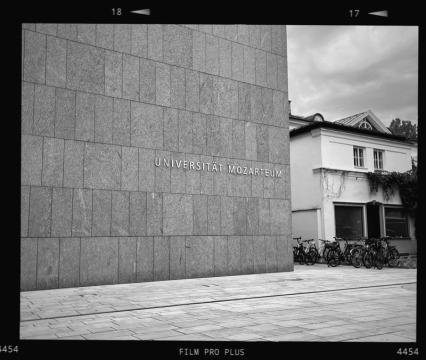
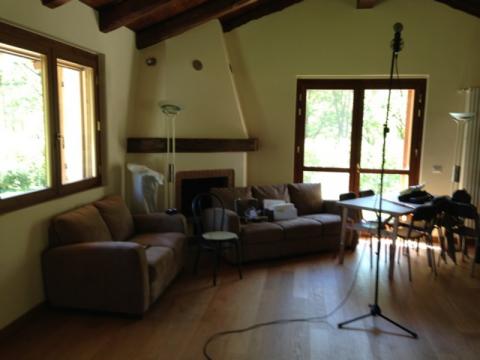
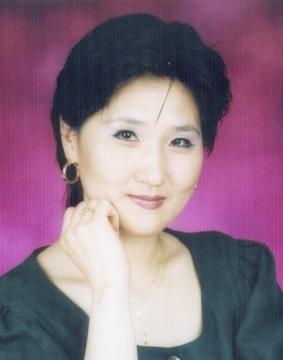
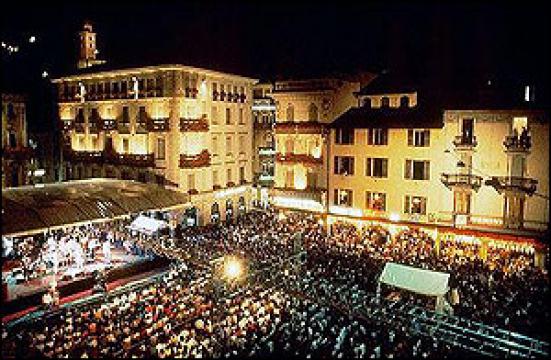

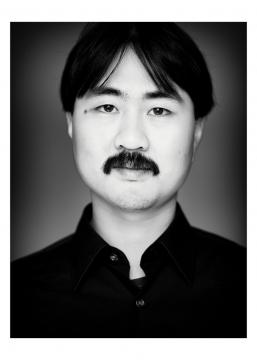


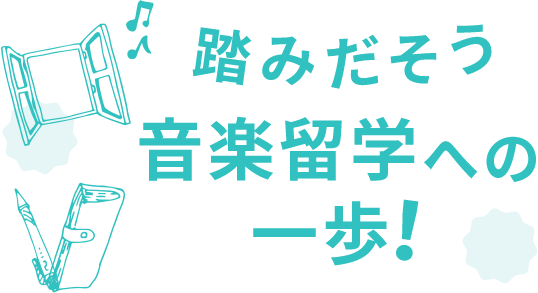
 Book a Counseling
Book a Counseling